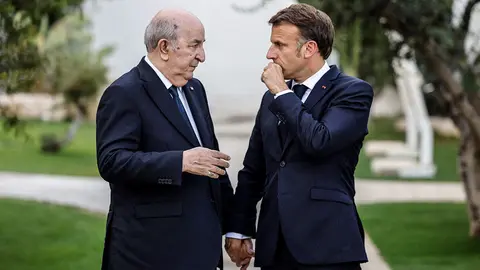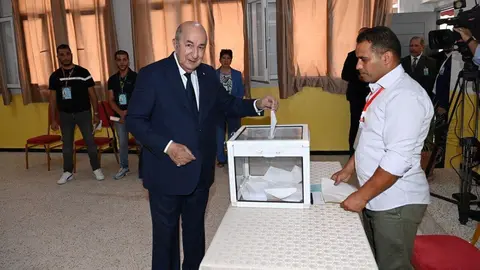The Algerian people are fed up with Tebboune's regime with the electoral boycott
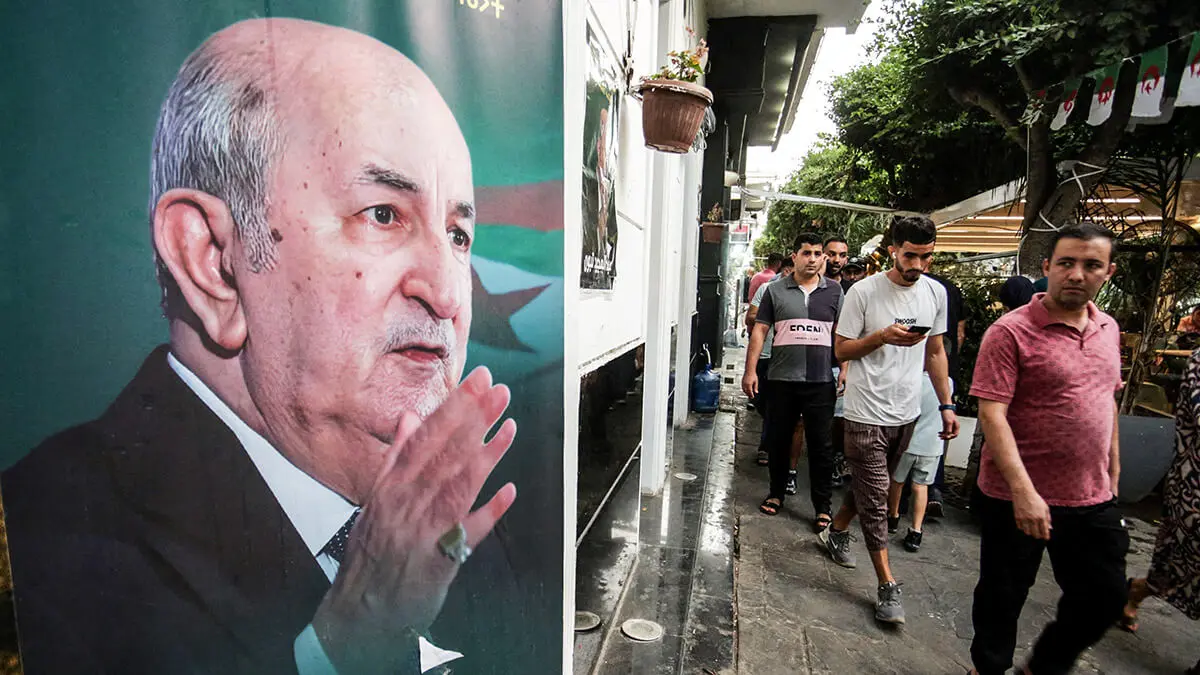
The crisis of legitimacy deepens as the days go by. The exclusion of candidates, the chaos generated during election day and the buying of signatures are just some of the reasons that have led the Algerian Workers' Party to challenge the elections.
The questioning of the election results continues to be a constant in Algeria two weeks after the presidential elections on 7 September. Low turnout has been the trigger for the protest.
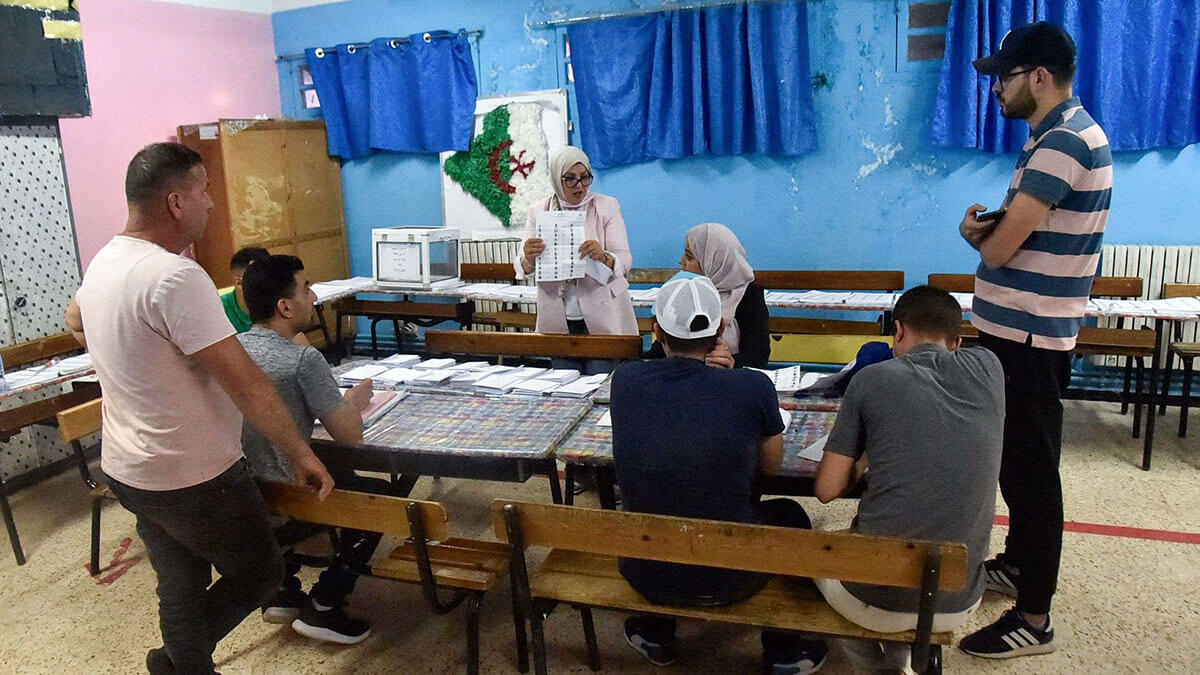
Out of 24.3 million people registered to vote, only 5.63 million turned out to vote. Of these, 84.5% went to Tebboune, 9.56% to Abdelaali Hassani Cherif and 6.14% to Youcef Aouchiche.
Louisa Hanoune, leader of the Algerian Workers' Party, declared that the real winner of the elections was the boycott by those who turned their backs on the electoral process, which is a true reflection of the deepening social crisis shaking the country because of the military regime of Abdelmadjid Tebboune.
Led by the Algerian Workers' Party, the legitimacy of the results is a rallying cry in Algerian public opinion. The reasons for questioning centre on the low turnout and the amplification of the results to favour the three main candidates, in an attempt to disguise the results.
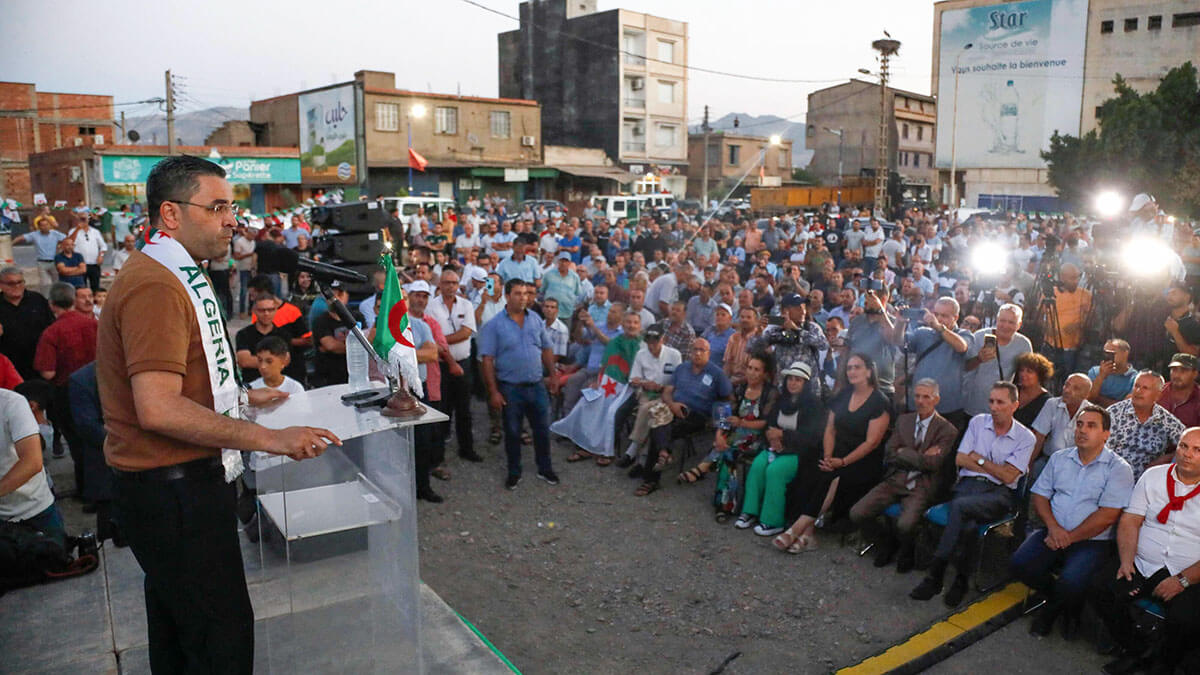
The lack of clarity from the Independent Electoral Authority (IEA) has led opposition parties to speculate that the data may have been doctored and manipulated, although the IEA said it would ‘act independently’.
In an official statement released by Hanoune, the Workers' Party said that ‘it has never happened, since the establishment of party pluralism in our country, that such a surprising amendment was recorded in the final results of the vote, after appeals had been lodged‘.
‘For us, we confirm that the final results are far from resolving the open crisis, but rather contribute to its exacerbation, because the final results in turn confirm that, during the massive abstentions and cancelled votes, a large majority of voters rejected the entire electoral process,’ he concluded.
Furthermore, the expulsion of her as a candidate in the elections framed it as an example of political violence that should be condemned in any electoral process around the world (similar to the case of María Corina Machado in Venezuela).
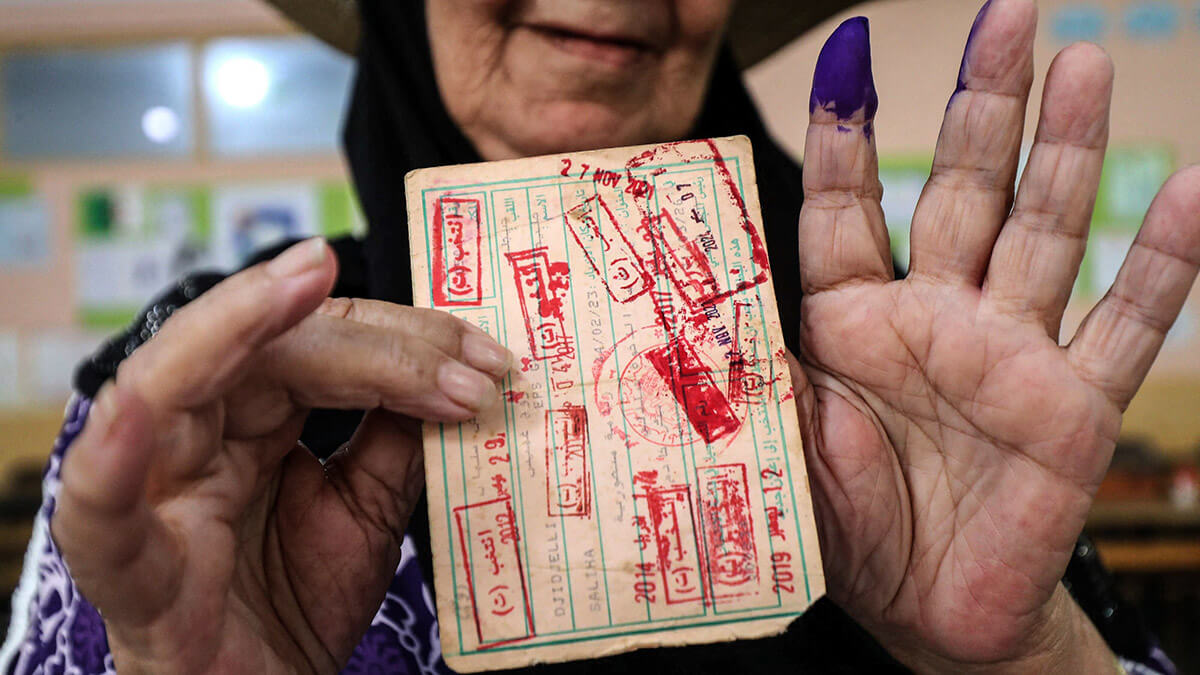
The attempt to buy more than 60 voters and 3 candidates was also mentioned by Hanoune as a ‘practice that seeks to remove the competition and benefit other candidates’.
Despite the low credibility of the parties of Hassani Cherif and Youcef Aouchiche, second and third in the polls, in the biased performance of the Electoral Authority, the results showed figures of dubious credibility. The Workers' Party considers that a ‘national salvation decision‘ is needed.
The attempt by the head of the National Electoral Authority, Mohamed Charfi, to conceal the government's defeat by claiming an average turnout of 48% and awarding 94.5% of the vote to Tebboune is also part of the criticism and the ruling to challenge the election results.

Such was the scandal perpetrated by Charfi that the 3 candidates with the most votes jointly denounced the irregularities and contradictions announced by the AINE, warning ‘public opinion of the vagueness and contradictions of the figures’.
The Workers' Party hopes that ‘after this failure which reflects the exacerbation of the political crisis‘ there will be ‘the right to a bold decision at the level of the gravity of the situation, a decision of national salvation, where the electoral process revealed an unprecedented abyss into which the country is plunging and what it is becoming: an easy prey for foreign interests inciting Algerians to wars that do not concern them while the population is getting poorer and poorer‘.

